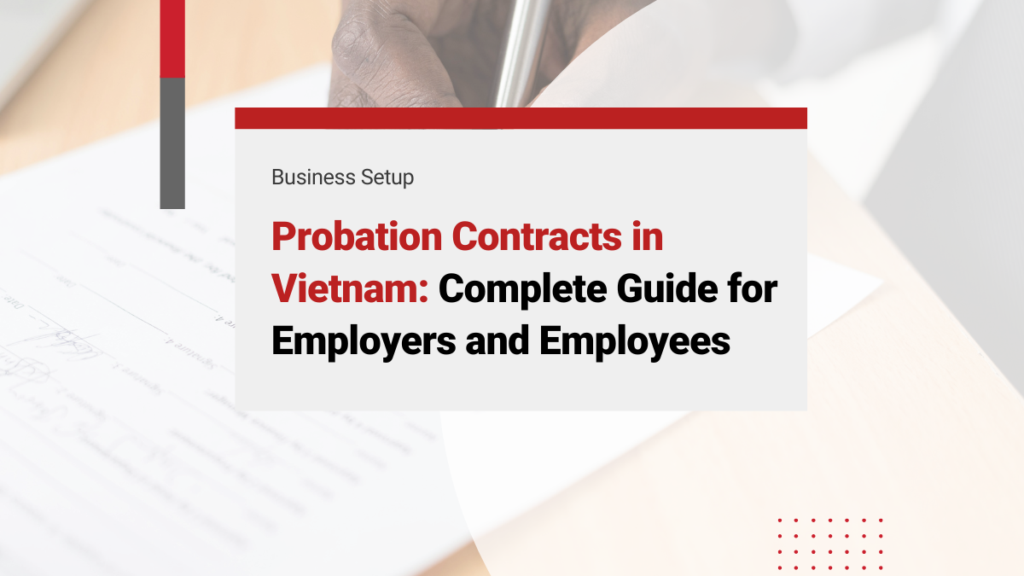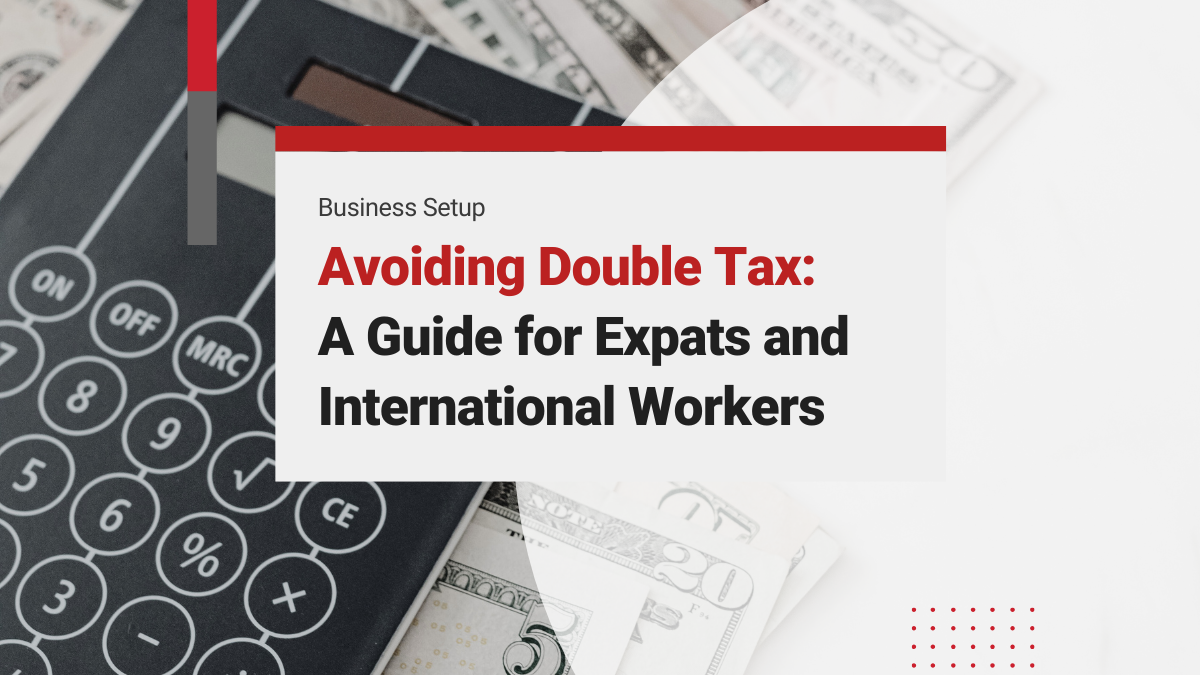Navigating Vietnam’s probation contracts is essential for foreign professionals and HR managers seeking success in a fast-growing market. With clearly defined probation periods, salary protections, and recent 2025 regulatory updates affecting documentation and social insurance, understanding these rules helps ensure a smooth start and full legal compliance. This article delivers a concise guide to the latest requirements and best practices for onboarding talent in Vietnam.
Understanding Probation Contracts in Vietnam
Probation contracts represent a fundamental component of Vietnam’s employment framework, allowing both parties to assess compatibility before committing to a long-term working relationship. Under the Labor Code 2019, which took effect on January 1, 2021, probation serves as a mutual evaluation period where employers assess employee skills, performance, and cultural fit, while employees determine workplace suitability.
The legal framework recognizes probation as an agreement between employer and employee for a trial period, with the primary purpose of evaluating competencies, qualifications, and workplace adaptability. This arrangement provides flexibility for both parties while maintaining essential employment protections.
Probation periods are limited to once per position, ensuring employers cannot exploit the system through repeated probationary arrangements. The Vietnamese government has implemented strict regulations to prevent abuse while maintaining necessary flexibility for legitimate business needs.

Read More: Vietnam Labor Law & Labor Code: A Guide for Businesses
Key Elements of a Probation Contract
A well-structured probation contract is essential for ensuring a clear understanding between employers and employees from the outset of a working relationship. Vietnamese law requires these contracts to include several mandatory details about both parties, the job, and the terms of employment. By specifying these elements, employers can ensure legal compliance and transparency throughout the probation period.
Additionally, understanding the different formats available for probation agreements helps organizations align with current social insurance and labor regulations, especially as requirements continue to evolve in 2025. This section will outline the key components you need to include in any probation contract and explain the practical options for structuring these agreements under Vietnamese law.
Essential Contract Components
According to Article 24 of the Labor Code 2019, probation contracts must include specific mandatory elements:
- Employer identification: Company name, address, and authorized representative details
- Employee information: Full name, date of birth, gender, residence, and identification documents
- Job description and workplace location
- Probation period duration
- Salary structure and payment terms
- Working hours and rest periods
- Personal protective equipment requirements
Contract Format Options
Vietnamese law provides two distinct approaches for structuring probation arrangements:
- Probation within labor contract: Probation terms are incorporated directly into the main employment agreement, creating a unified document that transitions seamlessly from probation to permanent employment upon successful completion.
- Separate probation contract: A standalone agreement specifically for the probationary period, requiring a subsequent labor contract if the employee meets performance standards.
The choice between these formats has significant implications for social insurance obligations, with separate probation contracts traditionally exempt from mandatory contributions, though 2025 updates have modified this arrangement.
Duration and Terms of Probationary Periods
Understanding the allowed duration and structure of probation periods is vital for ensuring compliance with Vietnamese labor laws. The Labor Code 2019 sets clear limits for probation based on job level, ranging from 6 working days to 180 days. It also outlines important restrictions, such as the one-time probation rule and conditions for short-term contracts. As of 2025, structured evaluations and proper documentation during probation are becoming standard practice for employers in Vietnam.
Maximum Probation Periods by Job Category
The Labor Code 2019 establishes clear maximum probation periods based on job complexity and required qualifications:
- 180 days: Enterprise executive positions as defined by the Law on Enterprises
- 60 days: Positions requiring college-level or higher professional qualifications
- 30 days: Technical positions requiring intermediate vocational certificates or skilled roles
- 6 working days: All other positions
Probation Restrictions and Limitations
Single probation rule: Employees may only undergo probation once per specific position, preventing employers from implementing multiple probationary periods as cost-cutting measures.
Contract duration requirements: Probation does not apply to employment contracts with terms shorter than one month, streamlining arrangements for very short-term work.
Rest day calculations: Probation periods are calculated based on actual working days, excluding weekends and holidays, ensuring fair time allocation for evaluation.
Current market trends in 2025 show employers increasingly adopting structured performance evaluations during probation periods, with clear metrics and documentation requirements becoming standard practice.

Salary and Benefits During Probation
Navigating salary and benefits during the probation period is crucial for both employers and foreign professionals in Vietnam. The law guarantees that employees receive a fair share of their eventual full salary, with minimum thresholds that vary by region and role. In addition to these salary protections, recent regulations have introduced stricter obligations for social insurance contributions and tax withholding on probationary wages. Understanding these updated requirements ensures international HR and talent avoid compliance pitfalls and anticipate compensation outcomes from the first day.
Minimum Salary Requirements
Article 26 of the Labor Code 2019 mandates that probationary salary must be at least 85% of the regular position salary. This requirement ensures fair compensation while providing employers with cost flexibility during the evaluation period.
2025 Regional Minimum Wage Context
Based on current 2025 regional minimum wages, probationary salaries must meet these thresholds:
- Region I (Hanoi/Ho Chi Minh City): Minimum VND 4,960,000/month for basic positions
- Region II: Minimum VND 4,410,000/month
- Region III: Minimum VND 3,860,000/month
- Region IV: Minimum VND 3,450,000/month
Read More: Minimum Wage in Vietnam: Still a Top Affordable Business Hub
Social Insurance and Tax Implications
2025 regulatory changes under the revised Social Insurance Law require mandatory contributions for probation contracts meeting employment criteria (paid work, salary, employer supervision). This represents a significant shift from previous exemptions for separate probation contracts.
Personal income tax obligations apply to probationary wages, with a 10% withholding rate for contracts under three months with payments exceeding VND 2,000,000. However, employees may claim refunds during annual tax finalization if total income falls below taxable thresholds.
Read More: Personal Income Tax (PIT) in Vietnam: A Guide for Expatriates
Termination of Probation Contracts
Termination of probation contracts in Vietnam offers both employers and employees a high degree of flexibility, making it an important aspect of the hiring process. Under the Labor Code 2019, either party can end the probation period without notice or compensation, simplifying the decision if expectations aren’t met.
However, employers are still legally required to provide written results at the end of the probation period to determine next steps. This section explains how to properly conclude a probation, avoid legal risks, and smoothly transition employees to full-time roles when applicable.
Flexible Termination Rights
Article 27 of the Labor Code 2019 grants both parties exceptional flexibility during probation periods:
- No prior notice required for termination by either party
- No compensation obligations for probation termination
- Immediate termination is permitted if performance standards are not met
Employer Notification Obligations
Employers must notify employees in writing of probation results upon period completion. This notification must clearly state whether the employee has met performance standards and outline next steps (contract continuation or termination).
Post-Probation Transition
Successful probation outcomes require employers to either continue the existing labor contract (if probation was included) or execute a new employment agreement (for separate probation contracts). Failure to provide timely notification while allowing continued work may result in automatic conversion to permanent employment status.
Employer Obligations and Penalties
Employers in Vietnam must adhere to strict legal obligations when managing probation contracts to avoid costly penalties and ensure fair treatment of employees. From proper documentation and performance tracking to providing safe working conditions and adequate support, compliance is essential throughout the probation period. With enforcement tightening in 2025 under Decree 12/2022, labor inspectors are increasing audits and issuing fines for even minor violations. This section outlines key employer responsibilities and the financial risks of non-compliance in today’s regulatory environment.
Mandatory Compliance Requirements
- Documentation standards: Employers must maintain comprehensive records of probation evaluations, performance metrics, and notification procedures.
- Fair treatment obligations: Probationary employees retain rights to safe working conditions, non-discrimination, and equal treatment regardless of probation status.
- Training and support: Employers must provide adequate onboarding, training, and supervision to enable probationary employees to succeed in their roles.
Violation Penalties and Enforcement
2025 enforcement data shows increased scrutiny of probation compliance, with common violations carrying these penalties:
- Exceeding maximum probation periods: VND 2,000,000 – 5,000,000 fine
- Failure to notify probation results: VND 500,000 – 1,000,000 fine
- Multiple probation violations: VND 4,000,000 – 10,000,000 fine
- Improper contract termination: VND 1,000,000 – 3,000,000 fine
Administrative enforcement has intensified under Decree 12/2022, with labor inspectors conducting more frequent workplace audits and imposing stricter penalties for non-compliance.
Special Considerations for Different Job Types
Executive and Managerial Positions
180-day probation periods for enterprise executives reflect the complexity of senior roles and significant investment in leadership transitions. These positions require extensive evaluation of strategic thinking, leadership capabilities, and cultural alignment.
Enhanced documentation requirements apply to executive probations, with board-level approval often required for termination decisions and detailed performance frameworks mandatory.
Technical and Professional Roles
60-day probation periods for college-level positions balance thorough evaluation with reasonable timeframes for skilled professionals. Technical roles often require assessment of both hard skills and collaborative abilities.
Industry-specific considerations in sectors like IT, engineering, and professional services may require specialized evaluation criteria and extended onboarding processes.
General Labor Positions
6-working day probations for basic positions provide rapid evaluation while minimizing administrative burden. These short periods require efficient onboarding and clear performance standards.
Streamlined processes for general labor positions focus on basic competency assessment and workplace safety orientation rather than complex skill evaluation.
Common Issues and Solutions
Frequent Compliance Problems
Extended probation periods remain the most common violation, with many employers incorrectly assuming they can extend probation beyond legal maximums.
> Solution: Implement clear HR policies with automated tracking systems to prevent duration violations.
Multiple probation attempts continue despite legal prohibitions, particularly in competitive industries where employers seek extended evaluation periods.
> Solution: Maintain comprehensive employee records and establish clear one-probation-per-position policies.
Inadequate result notification occurs when employers fail to provide timely written notification of probation outcomes.
> Solution: Develop standardized notification procedures with documented delivery confirmation.
Best Practice Recommendations
Structured evaluation frameworks help ensure fair, consistent probation assessment while providing legal protection against discrimination claims.
Regular feedback mechanisms during probation improve employee performance and reduce termination rates while demonstrating good faith evaluation efforts.
Clear communication protocols from probation start through result notification reduce disputes and improve overall employment relationships.
How InCorp Vietnam Can Help?
Probation contracts in Vietnam continue to be essential for aligning expectations while maintaining strong protections for both employers and employees. With new 2025 regulations on social insurance and stricter penalties, staying compliant has never been more important.
Staying updated with the ever-changing labor policies and compliance requirements in Vietnam can be overwhelming, especially for foreign investors and HR managers. InCorp Vietnam specializes in guiding international businesses through the complexities of local employment regulations, ensuring every step—from drafting probation contracts to managing compliance—is handled with accuracy and efficiency. Let InCorp Vietnam be your trusted partner so you can focus on growing your business while we handle the legal intricacies for you.
Learn the Right Setup for Business
Expansion in the Vietnam
Frequently Asked Questions
Can probation periods be extended beyond the legal maximum?
- No, probation periods cannot exceed the statutory limits (180 days for executives, 60 days for college-level positions, 30 days for technical roles, 6 working days for others). Extensions constitute legal violations subject to fines.
Are probationary employees entitled to social insurance benefits?
- Under 2025 regulations, probationary employees in employment-like arrangements (paid work, salary, supervision) are subject to mandatory social insurance contributions, regardless of contract type.
What happens if an employer fails to notify probation results?
- Employers face fines of VND 500,000 - 1,000,000 for notification failures. Additionally, continued employment without notification may result in automatic conversion to permanent employment status.
Can foreign employees undergo probation periods?
- Yes, foreign employees can undergo probation, but they must have valid work permits before starting any employment, including probationary periods.






